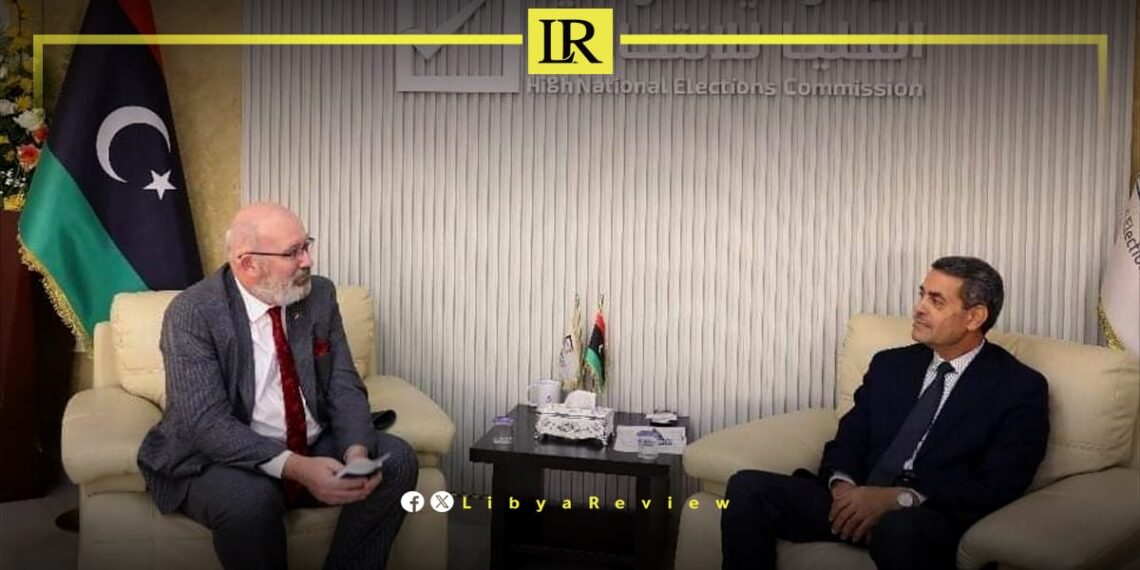The Chairman of Libya’s High National Election Commission (HNEC), Dr. Emad Al-Sayah, welcomed British Ambassador to Libya, Martin Longden, and his delegation to HNEC’s headquarters in Tripoli on Monday.
The visit aimed to reinforce international support for Libya’s democratic pathway, assess the commission’s readiness for the 2024 municipal council elections, and review preparations for election day.
During the meeting, Ambassador Longden expressed the UK government’s appreciation for the commission’s efforts to uphold global electoral standards.
He reaffirmed Britain’s readiness to provide technical and advisory assistance to enhance the HNEC’s capacity in conducting upcoming elections.
On Sunday, the National Election Commission of Libya (HNEC) officially set November 16 as the date for the first round of municipal elections. The announcement follows the commission’s approval of the final candidate list through Resolutions No. 120 and 121 of 2024, confirming that the elections will proceed as planned across designated municipalities.
The electoral campaigns will run until November 15, 2024, the designated “silence period”, during which all campaign activities must cease. The commission emphasized that voting will take place the next day, on Saturday, November 16, 2024.
The HNEC urged all candidates to comply with the electoral regulations, emphasizing the importance of adhering to Chapter 8 of the Executive Regulations issued under Decision No. 43 of 2023. These rules govern how candidates must present and promote their programs, ensuring fairness throughout the campaign process. All campaign activities are to stop 24 hours before voting day to preserve the integrity of the election.
The commission also called on election monitoring organizations to be prepared for transparent supervision of the voting process. Accredited observers are expected to operate impartially to enhance the credibility of the elections and ensure they are conducted fairly.
The statement extended a message to state institutions and officials, urging them to showcase the elections as a step forward for Libya. It stressed the importance of citizen participation in electing local leaders who reflect the aspirations of the people. The commission emphasized that building effective municipal councils will serve as a foundation for Libya’s long-term development and bring decision-making closer to local communities.
The HNEC also called on public authorities and citizens alike to support the electoral process by contributing their resources and capabilities to ensure a successful outcome. This election represents an opportunity for Libyans to rebuild their state from the ground up, empowering communities to elect representatives best suited to lead them toward a better future.
The HNEC acknowledged that organizing elections at this scale for the first time has posed several challenges. However, the commission expressed confidence in its preparations and highlighted the professionalism of its team. The statement affirmed that the second group of municipal elections will proceed in early 2025, with preparations beginning at the start of the new year.


